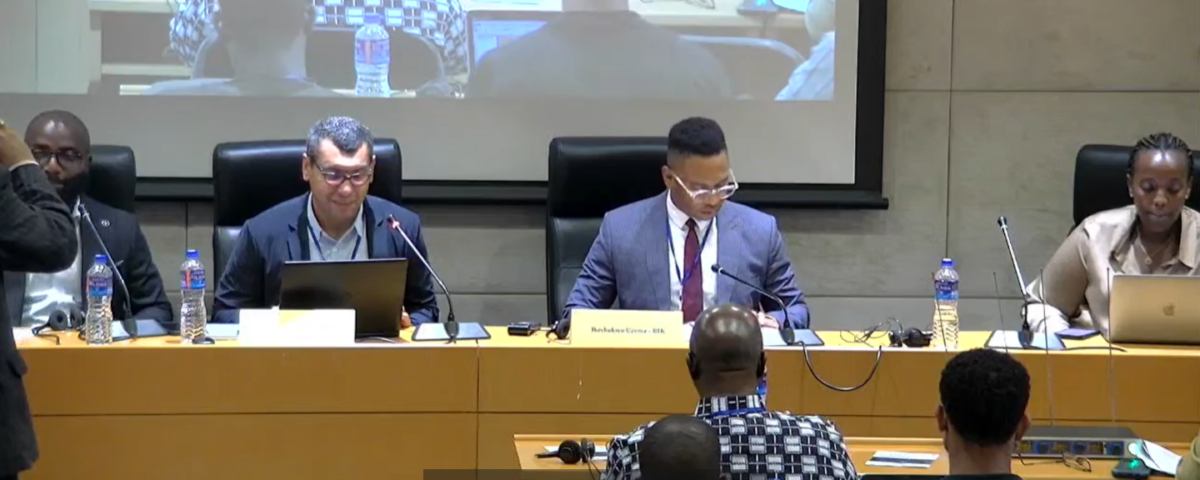The session on “Combating Impunity: Rights-Holders Engagement for Human Rights Advancement in Africa,” moderated by Ahmed Mefreh from the Committee for Justice (CFJ), addressed the critical challenges faced by the African Human Rights Commission due to insufficient support and resources. Mefreh called for a stronger commitment from all stakeholders to empower the Commission in its mission to promote and protect human rights across Africa. He praised the Arusha Initiative for uniting advocates to bolster the Commission’s efforts, emphasizing the importance of collective action in advancing human rights protection.
Ikechukwu Uzoma, Co-Chair of the Arusha Initiative, explained that the initiative emerged from years of consultation aimed at supporting human rights promotion in Africa. He expressed concern over states’ failure to adhere to established mechanisms, raising questions about ensuring compliance. Uzoma highlighted the widespread impunity across the continent and stressed the importance of human rights mechanisms. Launched in 2023 in Tanzania, the Arusha Initiative aims to support African-led human rights frameworks and increase awareness of these systems. The Africa Best Campaign, a key component, seeks to ensure that competent individuals are nominated to represent citizens in these mechanisms.
Walda Shaka, a member of the Arusha Initiative, discussed efforts to amplify the work of human rights defenders, making existing mechanisms within the African Human Rights System more accessible and effective. She emphasized the need for rights holders to actively engage in nominating jurists to the African Human Rights Court, promoting greater involvement and accountability.
Dr. Muhindo Makunya Tresor, also part of the Arusha Initiative from DRC, highlighted issues of inclusiveness and transparency in selecting representatives for human rights mechanisms. He criticized how executive leaders often select individuals without stakeholder engagement, leading to a lack of ownership among the population. He called for advocacy to reform nomination systems to enhance public participation.
Jessica Ramirez, an Independent Expert from Latin America, stressed the importance of a participatory process in selecting candidates for human rights mechanisms. She compared this with the transparent nomination processes of the Organization of American States (OAS), where qualifications are publicly shared and sessions are live-streamed. Ramirez underscored civil society organizations’ crucial role in ensuring that right holders are informed about nominees.
Participants’ Interventions
- A participant from Uganda emphasized addressing impunity across Africa, asserting that solidarity can help solve local challenges.
- A participant from Egypt called for solidarity with Palestinians facing violence from Israeli forces, stressing adherence to international laws.
- A participant from Mali argued that judges should not be selected by public vote due to the rigorous nature of their roles.
- A participant from Kenya questioned whether National Human Rights Institutions are involved in the Arusha Initiative.
- Another participant from Uganda raised concerns about high levels of impunity in their country and sought clarity on how the initiative could help address this issue.
- A Southern African participant suggested that combating impunity should start with strengthening legal frameworks and criminalizing impunity itself.
- A participant from Morocco pointed out their country’s failure to ratify certain charters, expressing hope that the Arusha Initiative would remain independent and not politically driven.


